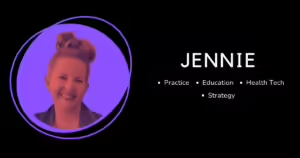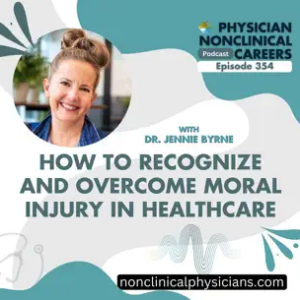In my private practice, I offered psychotherapy to my patients. Having done my psychiatry training in New York City, I did a ton of psychotherapy training. I spent many years learning cognitive behavioral therapy, psychodynamic psychotherapy, and other types of supportive psychotherapy.
I first started my practice with a small caseload. I had maybe fifty patients in total, and most of them liked to do psychotherapy with me. A typical psychotherapy session would be forty-five minutes with the patient and then a ten-minute buffer between appointments. At first, I saw four or five people a day, and I loved it. The connections with my patients energized me. I had no burnout, and I had high empathy.
Over the next few years, my practice grew. I saw more patients per day. Typically, I had a caseload of 150 active patients, and a third needed psychotherapy at any given time. My days got longer and packed back-to-back with appointments. As many of my initial patients stabilized, we switched to shorter medication management appointments. During these shorter appointments, I spent twenty minutes with the patient, with a ten-minute buffer. I could only handle one to two longer psychotherapy appointments per day.
So, what happened? Why could I only see two patients for psychotherapy without feeling tired at the end of the day?
What happened was empathy fatigue. As a psychiatrist and a psychotherapist, I trained in empathy fatigue. Psychotherapists are human beings who can take on only so much in a single day. To be honest, in psychotherapy, the emotions were strong. I felt fatigued when I took on other people’s emotions, put myself in their shoes, and saw what they experienced.
When I looked closer at my practice experience, my empathy level decreased when I saw patients for medication management. Even though these patients were not being seen for psychotherapy appointments, they walked into the room with stories and emotions and things happening in their life. Despite the shorter appointment length and focus on medications, I still found myself empathizing with them. I took on emotional content, even though I didn’t practice psychotherapy, per se.
A typical medication management appointment lasted thirty minutes in total. I had, let’s say, four hours of those a day. Eight people deserved my empathy. By the time I got to the psychotherapy patients, I couldn’t handle more than two in a day. I saw how empathy fatigue arose from medication management, which in theory, should have been cut and dry.
Understanding empathy fatigue helps us understand our struggles in the workplace. I read many articles discussing the need for empathy from managers and leaders. People are currently on video calls for hours and hours, trying to exude empathy through the camera.
Even great leaders only have so much empathy to give in a single day. To maximize the amount of empathy we give in a day, we have to take really good care of ourselves. We must be physically, mentally, relaxed, rested, calm, and collected. We have to show up in an incredibly good state of mind.







